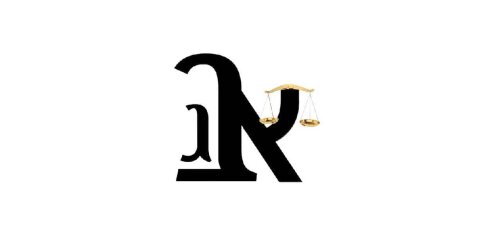Best Personal Injury Lawyers in Jerusalem
Share your needs with us, get contacted by law firms.
Free. Takes 2 min.
List of the best lawyers in Jerusalem, Israel
About Personal Injury Law in Jerusalem, Israel
Personal injury law in Jerusalem, Israel, encompasses a broad range of legal claims that arise when one person suffers harm from an accident or injury, and someone else might be legally responsible for that harm. These can include automobile accidents, slip and fall incidents, medical malpractice, workplace accidents, and more. The goal of personal injury law is to make the injured party whole by awarding them compensation for their losses and to serve as a deterrent to prevent others from committing similar offenses.
Why You May Need a Lawyer
Engaging with a personal injury lawyer is crucial in many scenarios. Here are some common situations where legal assistance may be necessary:
- Serious Injuries: If you've sustained severe injuries that require extensive medical care, you will likely need a lawyer to help calculate and recover appropriate compensation.
- Insurance Disputes: Insurance companies may try to minimize their payouts. Having a lawyer ensures that your interests are adequately represented.
- Medical Malpractice: Cases involving medical errors are complex and difficult to navigate without specialized legal expertise.
- Complicated Liability: In cases where fault is not clear or involves multiple parties, a lawyer can help clarify and prove liability.
- Legal Procedure: Personal injury claims involve complicated procedures, timelines, and court rules that a lawyer can help manage.
Local Laws Overview
Several key aspects of local laws in Jerusalem are particularly relevant to personal injury cases:
- Statute of Limitations: Generally, the time limit for filing a personal injury lawsuit in Israel is seven years from the date of the injury.
- Proof of Negligence: To win a personal injury case, one must prove that the other party was negligent and that this negligence resulted in the injury.
- Mandatory Car Insurance: Israel requires all drivers to have mandatory insurance, which covers personal injuries in car accidents regardless of fault.
- Workplace Injuries: Claims for workplace injuries are usually handled through the National Insurance Institute, although additional compensation can sometimes be sought through personal injury claims.
- Damages: Compensation can cover medical expenses, lost wages, pain and suffering, and other damages as determined by the court.
Frequently Asked Questions
What qualifies as a personal injury case?
A personal injury case arises when someone suffers harm due to another's negligence or intentional act, including traffic accidents, slips, medical malpractice, and workplace injuries.
How soon should I contact a lawyer after an injury?
It is advisable to contact a lawyer as soon as possible to ensure that your rights are protected and to collect necessary evidence while it is still fresh.
What compensation can I receive in a personal injury case?
Compensation may include medical expenses, lost wages, pain and suffering, and sometimes punitive damages.
Is it expensive to hire a personal injury lawyer?
Many personal injury lawyers work on a contingency fee basis, meaning they only get paid if you win your case.
What evidence do I need to prove my case?
Critical evidence includes medical records, witness testimony, accident reports, photographs of the scene, and expert evaluations.
How long does a personal injury case take?
The duration of a personal injury case can vary widely, from a few months to several years, depending on its complexity and whether it goes to trial.
Can I settle my case out of court?
Yes, many personal injury cases are settled out of court to save time and costs. Your lawyer will negotiate on your behalf.
What if I was partially at fault for the accident?
Israel follows a comparative negligence standard, meaning your compensation may be reduced by your percentage of fault.
Do I have to go to court for a personal injury claim?
Not necessarily. Many claims are resolved through settlement negotiations without going to court.
What should I bring to my initial consultation with a lawyer?
Bring any relevant documents, including medical records, accident reports, insurance information, and any correspondence related to the injury.
Additional Resources
Here are some resources that can help you if you need legal advice on personal injury in Jerusalem, Israel:
- National Insurance Institute (NII): Handles workplace injury claims and social security benefits.
- Ministry of Health: For issues related to medical malpractice and healthcare services.
- Israel Bar Association: Provides a directory of licensed lawyers in various legal fields, including personal injury.
- Consumer Protection Authority: Can offer guidance on dealing with insurance companies.
Next Steps
If you need legal assistance in personal injury, here are the steps you should follow:
- Consult with a Lawyer: Reach out to a qualified personal injury lawyer to discuss your case. They can offer a preliminary consultation, usually free of charge.
- Gather Evidence: Collect all relevant documents, photos, and witness statements to build a strong case.
- File a Claim: Your lawyer will guide you on how to formally file a personal injury claim, whether it's with an insurance company or through the court system.
- Negotiate or Litigate: Work with your lawyer to negotiate a fair settlement or prepare for court if necessary.
- Follow Through: Follow your lawyer’s advice throughout the process to ensure the best possible outcome for your case.
Lawzana helps you find the best lawyers and law firms in Jerusalem through a curated and pre-screened list of qualified legal professionals. Our platform offers rankings and detailed profiles of attorneys and law firms, allowing you to compare based on practice areas, including Personal Injury, experience, and client feedback.
Each profile includes a description of the firm's areas of practice, client reviews, team members and partners, year of establishment, spoken languages, office locations, contact information, social media presence, and any published articles or resources. Most firms on our platform speak English and are experienced in both local and international legal matters.
Get a quote from top-rated law firms in Jerusalem, Israel — quickly, securely, and without unnecessary hassle.
Disclaimer:
The information provided on this page is for general informational purposes only and does not constitute legal advice. While we strive to ensure the accuracy and relevance of the content, legal information may change over time, and interpretations of the law can vary. You should always consult with a qualified legal professional for advice specific to your situation.
We disclaim all liability for actions taken or not taken based on the content of this page. If you believe any information is incorrect or outdated, please contact us, and we will review and update it where appropriate.















